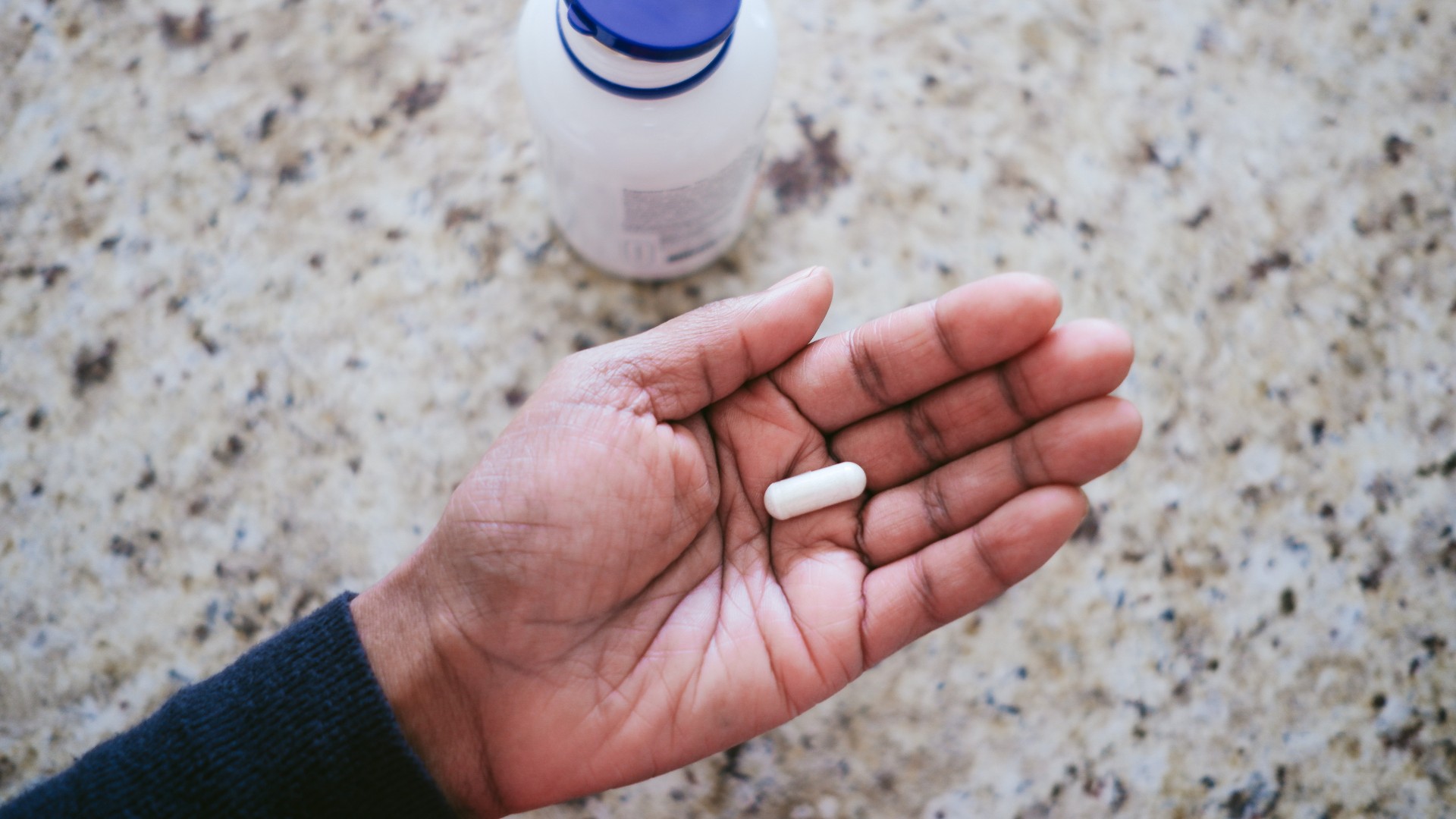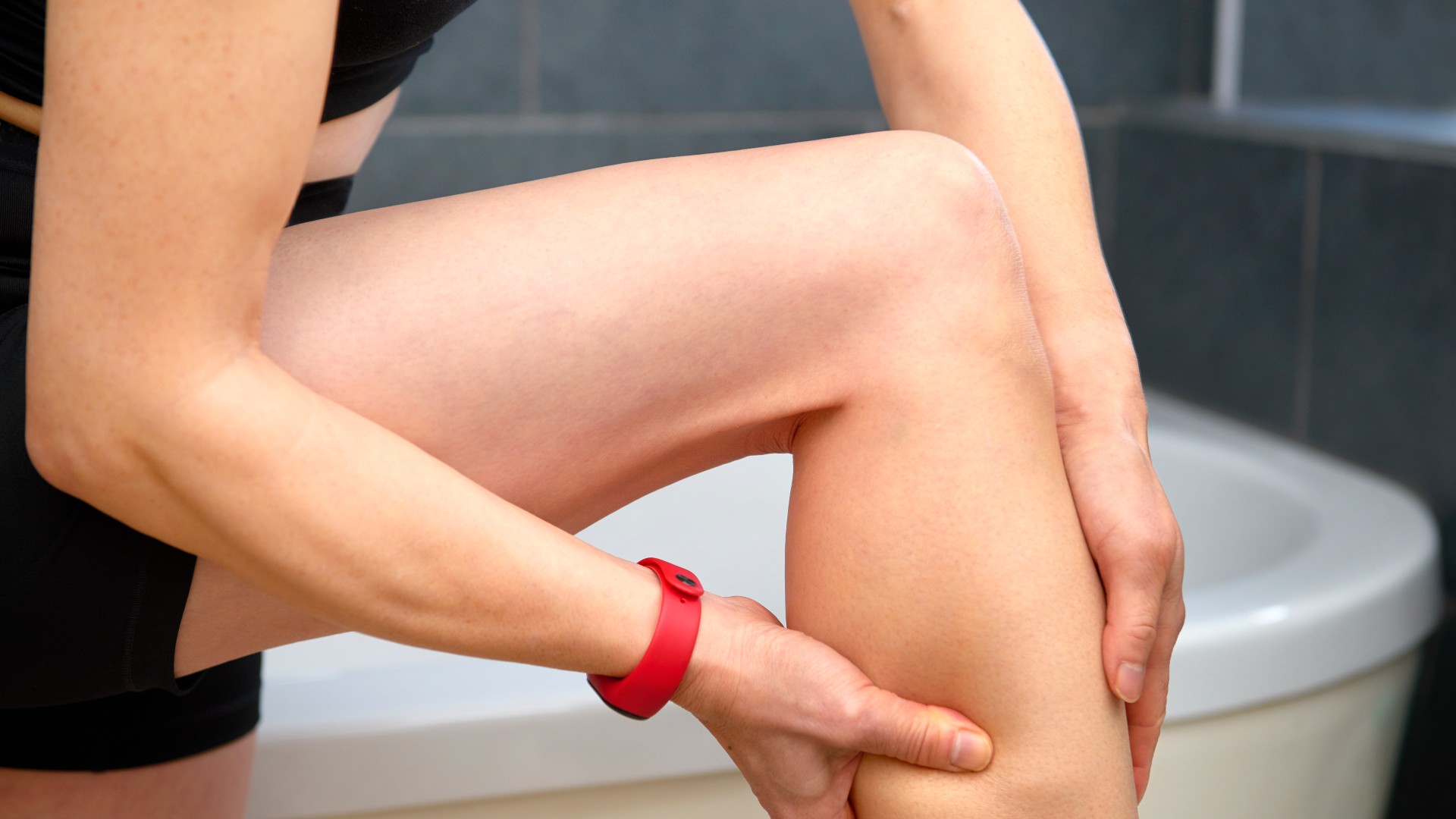
Did you know that nearly half of Americans have low magnesium levels? Magnesium is a mineral regulating processes in your body like blood pressure, energy production, and muscle and nerve function. It’s found in foods like dark leafy greens, lean meat, and whole grains. But some people choose to top up with magnesium supplements or take a bath with magnesium-based products.
In addition to being beneficial for sleep (here’s more on how magnesium helps you sleep), magnesium helps promote recovery, as it’s a natural muscle relaxant. But how should you use magnesium in your running routine, and can it actually make a difference?
To find out more, I sprayed magnesium oil onto my skin for a month in the run up to my fifth marathon. I noted down how my legs felt, and spoke to an expert about how and when you should use a magnesium supplement in your routine. As a reminder, what works for me might not be right for you and your body — it’s a good idea to consult your doctor before taking supplements, especially if you’re taking other medication.
How much magnesium should you take?

The Recommended Dietary Allowance (RDA) for adults between 19-51+ years is 400-420mg for men, 310-320mg for women, and pregnant women require more — roughly 350-360mg. That's according to the National Institutes of Health.
When using a magnesium spray for recovery, Emily Simpson, BSc Biology/Biological Sciences, recommends spraying the skin 10-20 times in the morning and evening and massaging into the skin.
“Absorption commences immediately and the magnesium is absorbed through the skin into the epidermis, straight into the blood vessels and muscles to provide a fast and effective dose directly where it is needed,” Simpson says.
I used a magnesium body spray for a month of marathon training — here are my results
To find out more, I incorporated using the BetterYou Magnesium Muscle Body Spray into my post-run routine. The spray contains magnesium chloride, lemon oil, arnica, and capsicum. The two forms of magnesium used in cosmetics are magnesium chloride, typically used in sprays, and magnesium sulfate, typically found in Epsom salt baths.
It made my skin itch
For the first week of this challenge, I couldn’t get over the skin itch that came with the magnesium spray. I spoke to Simpson to find out more. “Sometimes people can experience a slight itching or tingling feeling after using magnesium spray due to the large magnesium molecule being rapidly absorbed through the skin,” she explained.
While it wasn’t ideal, she said it was something to note — “it is most likely an indicator you have a magnesium deficiency, therefore, the sensation will pass the more you use the spray as your cellular magnesium levels increase.”
To reduce the itching, she recommended applying the spray onto wet skin after a shower, while my pores were open. I also reduced the amount — 10 sprays was the equivalent of 150mg of magnesium, about half of what I needed daily. I opted for 10 a day at the start and built this up.

I did find, however, that the itching eased as the weeks went on — a sign my body’s magnesium levels were topped up. Of course, if you can’t stand the itching, or you have particularly sensitive skin, there are other options, including magnesium tablets.
When I asked Simpson about these she explained that there are advantages and disadvantages of each — the "advantages of transdermal magnesium over tablets include having fewer side effects as it bypasses the digestive system and providing a more targeted application as it can be applied directly to the area of concern,” she explained.
It stopped my leg muscles from twitching
Often, after a particularly hard session, my leg muscles will twitch at night when I’m trying to nod off to sleep. Research suggests that this might be down to fatigue, or an electrolyte imbalance.
During my weeks of using magnesium spray, I found I didn’t have the same aching, twitching legs after my long runs or speed sessions. I like to think it wasn’t just a placebo, and Simpson agrees, noting that magnesium, “helps to promote exercise recovery as magnesium is a natural muscle relaxant which when combined with arnica, capsicum, and lemon oils helps to gently warm and relax the muscles.”
It helped me feel more relaxed
Rohini Bajekal, certified nutritionist and board-certified lifestyle medicine professional at Plant-Based Health Professional told Tom’s Guide, “There is limited evidence to support everyone at a population level taking magnesium supplements for insomnia. However, magnesium has been found to support restful and restorative deep sleep. It does so by maintaining healthy levels of GABA (Gamma-Aminobutyric Acid) —a neurotransmitter (chemical messenger) that has sleep-enhancing and stress-reducing effects.”
When it comes to magnesium and sleep, research has found magnesium can stimulate GABA and even bind to the neurotransmitter, helping to slow down nerve activity and allowing you to drift off.
During my month of using magnesium spray, I did feel more relaxed, however when I’m in marathon training mode, I do tend to make healthier decisions and be stricter with my bedtime. That said, until the week before the race, I was sleeping well.
Of course, no supplement can replace training, but adding magnesium to my recovery routine this marathon training schedule has been a simple (albeit itchy at first) switch. I’ve also eaten well, stayed hydrated, done some simple stretching and strength training, and used one of the best massage guns on any tight spots. Either way, I’m nearly at the start line injury-free, and magnesium has earned it’s spot in my post-run routine for good.







